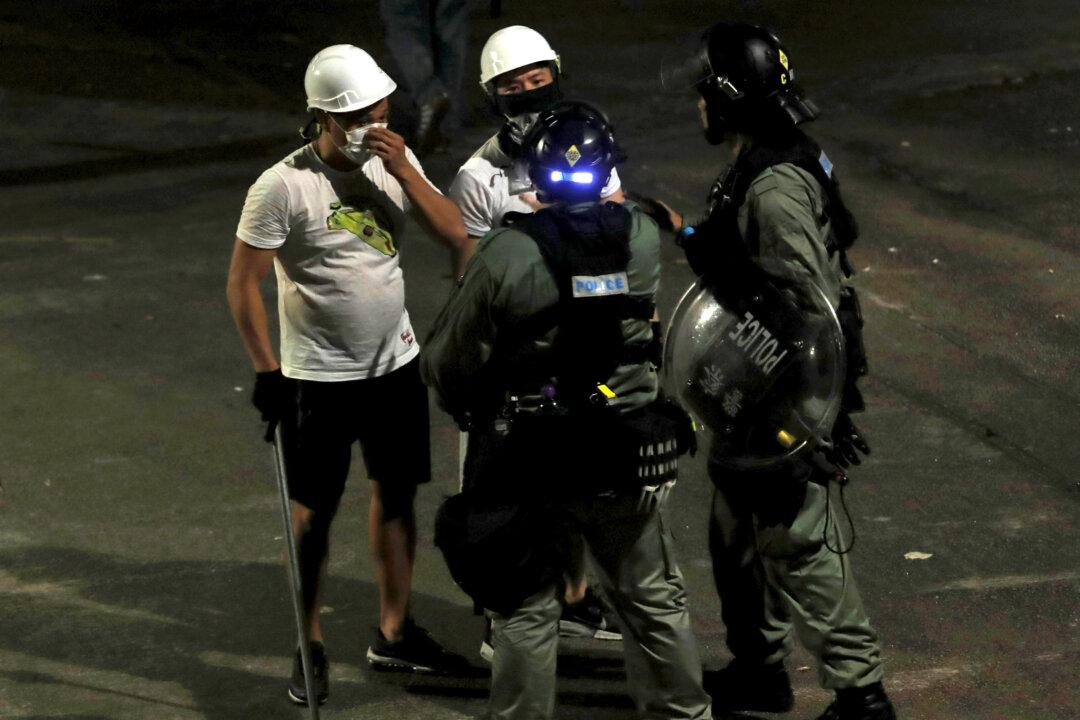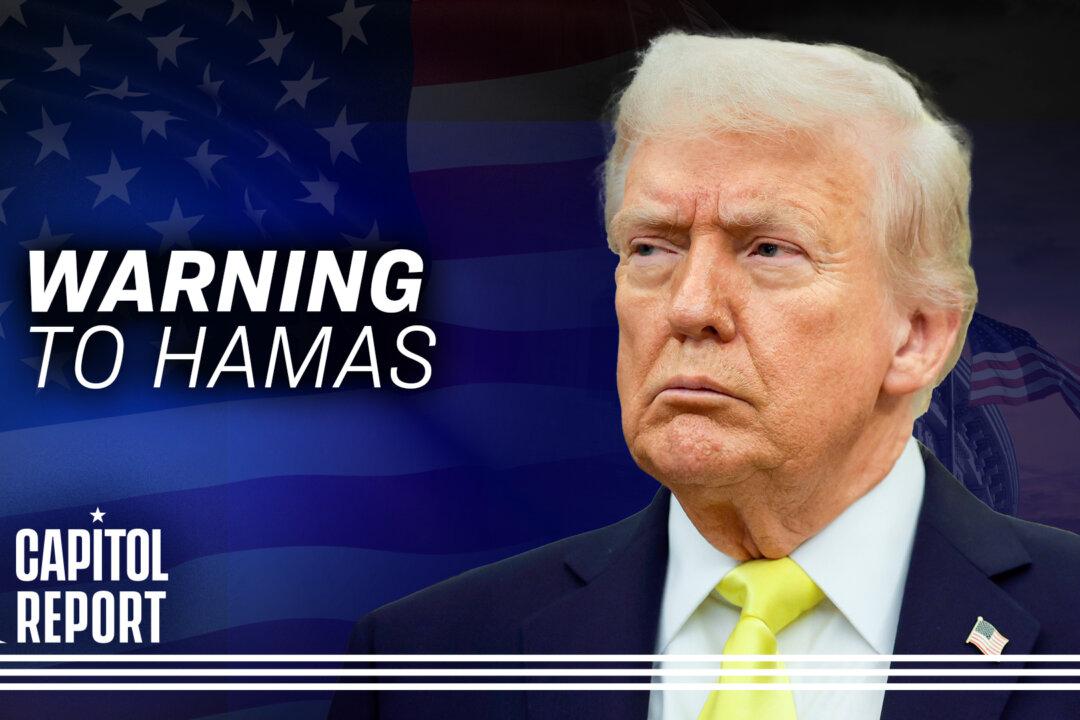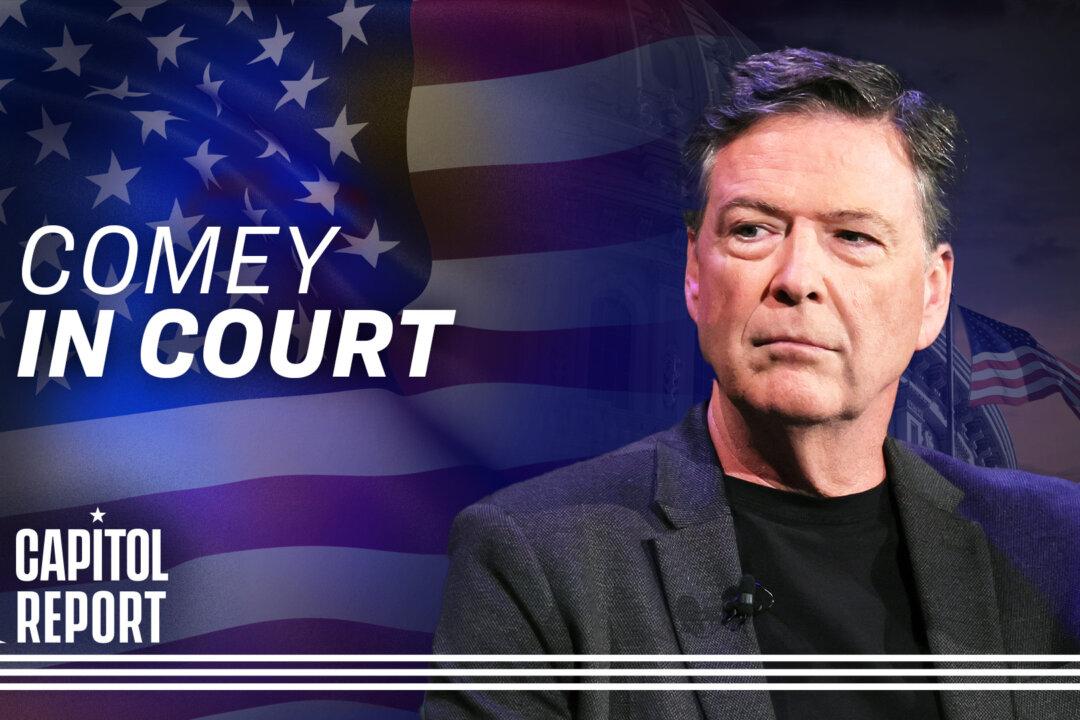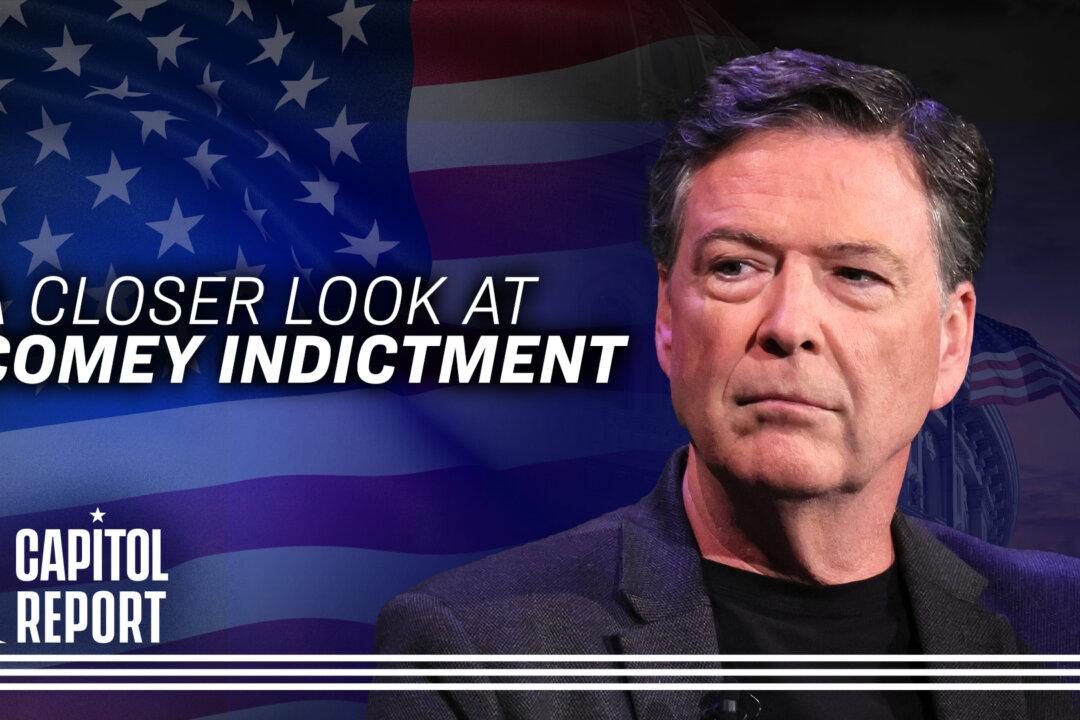As details from a brazen mob attack at a Hong Kong metro station have begun to emerge, a growing number of Hongkongers are suspecting collusion between the masked attackers and the city’s embattled police force.
Dozens of masked men in white shirts stormed a train station in Hong Kong’s northwestern town of Yuen Long late night on July 21, wielding wooden sticks and metal bars and beating passengers indiscriminately. At least 45 were injured, with one in serious condition, according to the Hospital Authority of Hong Kong.





